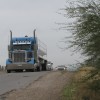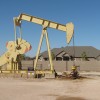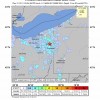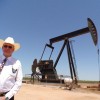Background
The Barnett Shale is a geological formation and rich source of natural gas located in the Fort Worth Basin in Northeast Texas. The shale consists of sedimentary rock made of clay and quartz and spans 5,000 square miles, beneath about 18 North Texas counties. The productive portion of the rock formation is located directly beneath Johnson, Tarrant and western Dallas counties, about a mile and a half underground. The shale contains an estimated 40 trillion cubic feet of natural gas, making it the largest onshore natural gas field in Texas and potentially in the United States.
The first well on the Barnett Shale was drilled in 1981 by Mitchell Energy. Drilling technology at that time didn’t allow for natural gas production in commercial quantities. Recent advances in drilling techniques such as hydraulic fracturing and horizontal drilling have enabled energy producers to extract gas from the Barnett Shale more efficiently and economically. Today thousands of natural gas wells pepper the landscape above the shale, making it an economically significant area for the state of Texas.
The use of hydraulic fracturing, or fracking, on many of the wells has sparked some controversy in recent years, as critics of the drilling method have questioned its impact on nearby water supplies.
There have been earthquakes linked to injection wells in the Dallas-Fort Worth area. Those quakes are linked to drilling in Barnett Shale. The productive portion of the Barnett Shale is located directly beneath Johnson, Tarrant and western Dallas counties, about a mile and a half underground. The shale contains an estimated 40 trillion cubic feet of natural gas, making it the largest onshore natural gas field in Texas and potentially in the United States.
Since its discovery, the Barnett Shale has produced an estimated 4.8 trillion cubic feet of natural gas. A 2007 study by the Perryman Group suggests activity at the Barnett Shale is expected to create 108,000 jobs and produce $10.4 billion in revenue by the year 2015.








